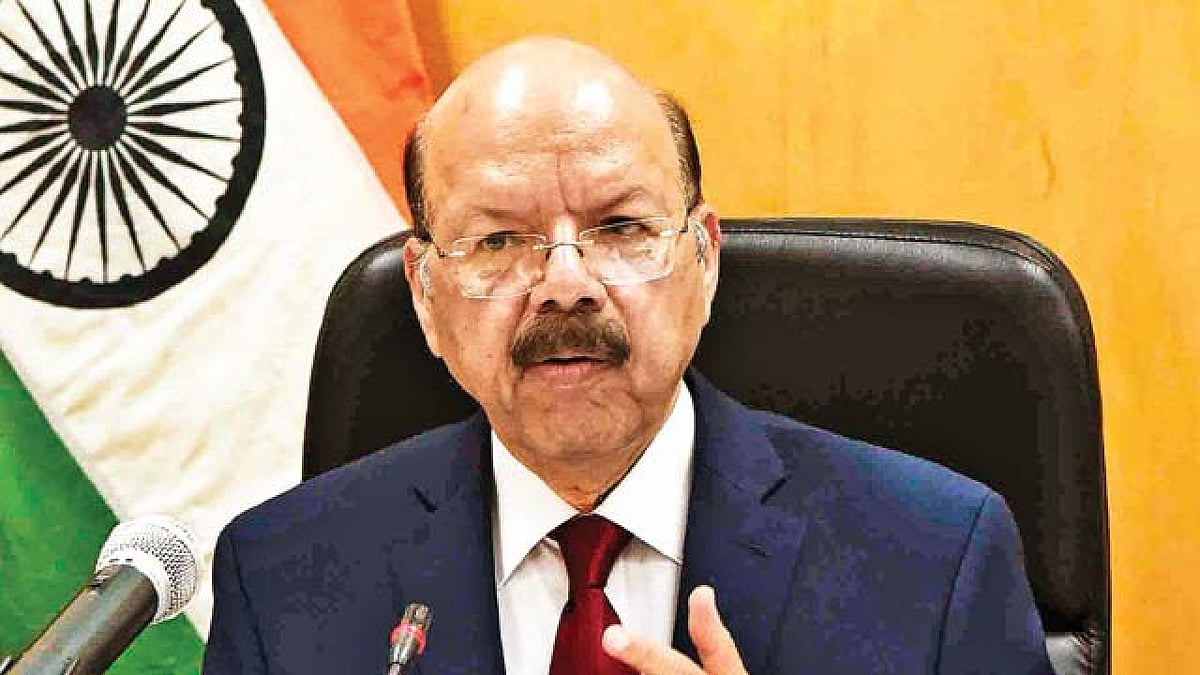India
EC will have to gain voters’ confidence with EVMs: Former CEC Zaidi
Former CEC Nasim Zaidi said the commission will have to gain the voters’ trust in Electronic Voting Machines, which have been targeted by political parties for “digital manipulation” of votes

Former Chief Election Commissioner Nasim Zaidi on Wednesday said the commission will have to gain the voters' trust in Electronic Voting Machines, which have been targeted by political parties for "digital manipulation" of votes.
"The most important thing that the commission will have to deal with is EVMs and VV PATs because of the background. The trust and confidence of voters has to be generated," Zaidi said.
He was speaking at a panel discussion on understanding the impact of fake news on elections.
"The commission has not come across any so-called fake news so far. During Gujarat elections last year, there were instances. This year, there weren't many in elections in the North-East."
He said the EC will have to engage with various stakeholders and formulate guidelines to reduce the impact of fake news. He said social media will have to play a bigger role.
"The Election Commission will have to partner with all stakeholders. Social media platforms will also have to be more responsible and accountable.
Published: undefined
“During the Karnataka elections this year, Facebook allowed people to assess whether a particular news is fake and thereafter, it subjected this news to what is called fact-checker. They started removing the virality of the fake news,” said Zaidi
"It cannot be left to the EC alone. When I say partnering, I don't mean partnering in terms of revenue. Without Social media platforms' partnership, it will be difficult to reduce the impact of fake news," he stressed.
He suggested the commission may partner civil societies and the government.
"One of the most important elements of free and fair elections is that an individual voter should be able to express one's choice without any external influence.
"Social media, by allowing the flow of fake news can impact the behavioural changes and the free will. The voting pattern is distorted. The misuse of data has to be dealt with by the EC for fair elections," said Zaidi.
He noted that there is no law in India against fake news and said it was difficult to formulate one, but stressed that there was a need for formulating some anti-bribery laws to have fair elections.
He explained how before the 2013 general elections, the Election Commission was not on the social media despite a framework and said that post engagement on the social media, EC's role has gathered momentum.
"During the Karnataka elections this year, Facebook allowed people to assess whether a particular news is fake and thereafter, it subjected this news to what is called fact-checker. They started removing the virality of the fake news," he said.
"The EC dealt with the so-called phenomenon of paid news. We had disqualified many legislators, including ministers," he added.
Published: undefined
Follow us on: Facebook, Twitter, Google News, Instagram
Join our official telegram channel (@nationalherald) and stay updated with the latest headlines
Published: undefined